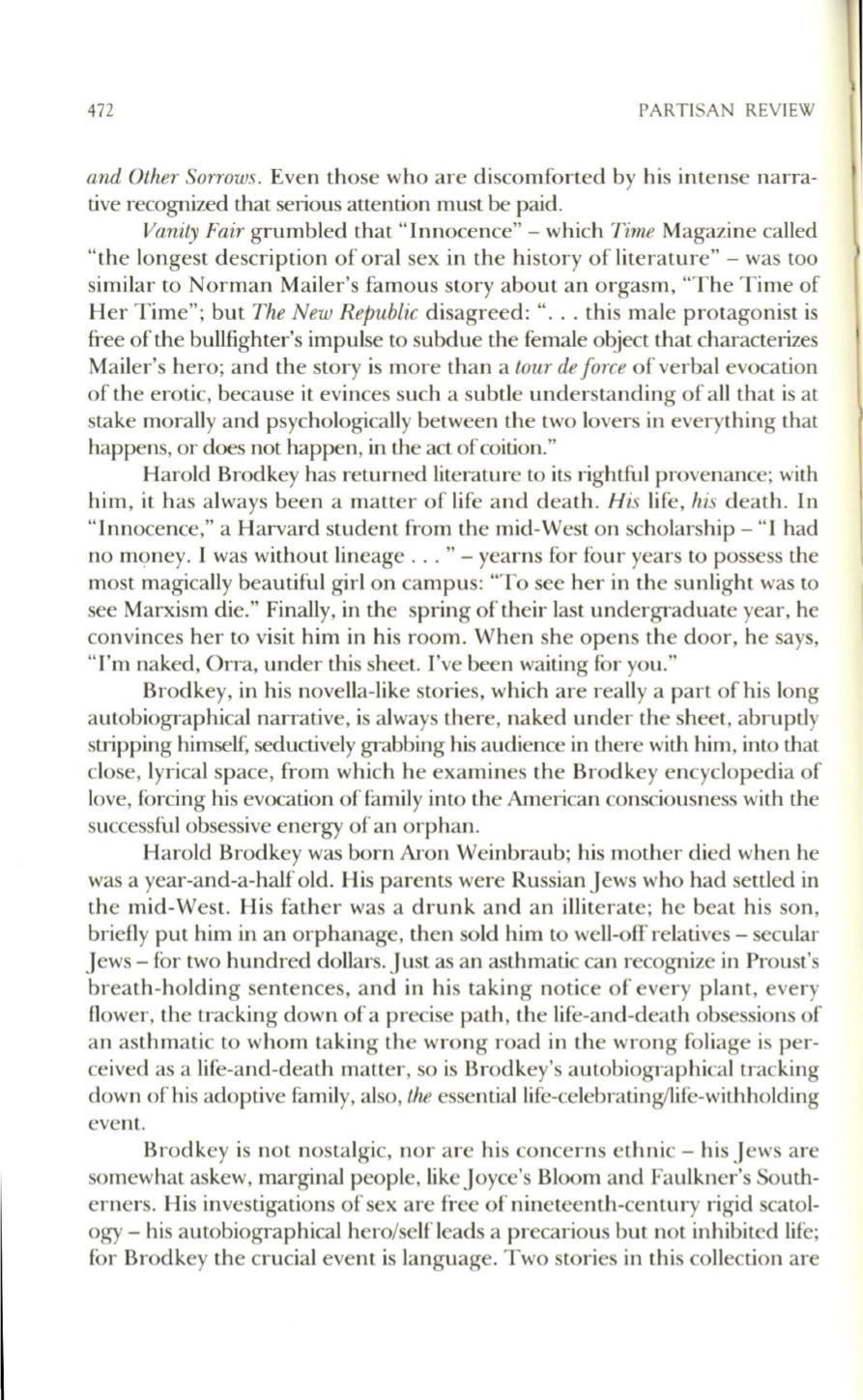
472
PARTISAN REVIEW
and Other Sorrows.
Even those who are discomforted by his intense narra–
tive recognized that serious attention must be paid.
Vanity Fair
grumbled that "Innocence" - which
Time
Magazine called
"the longest description of oral sex in the history of literature" - was too
similar to Norman Mailer's famous story about an orgasm, "The Time of
Her Time"; but
The New Republic
disagreed: "... this male protagonist is
free of the bullfighter's impulse to subdue the female object that characterizes
Mailer's hero; and the story is more than a
tour de force
of verbal evocation
of the erotic, because it evinces such a subtle understanding of all that is at
stake morally and psychologically between the two lovers in everything that
happens, or does not happen, in the act ofcoition."
Harold Brodkey has returned literature to its rightful provenance; with
him, it has always been a matter of life and death.
His
life,
his
death. In
"Innocence," a Harvard student from the mid-West on scholarship - "I had
no money. I was without lineage .. . " - yearns for four years to possess the
most magically beautiful girl on campus: "To see her in the sunlight was to
see Marxism die." Finally, in the spring of their last undergraduate year, he
convinces her to visit him in his room. When she opens the door, he says,
''I'm naked, Orra, under this sheet. I've been waiting for you."
Brodkey, in his novella-like stories, which are really a part of his long
autobiographical narrative, is always there, naked under the sheet, abruptly
stripping himself, seductively grabbing his audience in there with him, into that
close, lyrical space, from which he examines the Brodkey encyclopedia of
love, forcing his evocation of family into the American consciousness with the
successful obsessive energy of an orphan.
Harold Brodkey was born Aron Weinbraub; his mother died when he
was a year-and-a-half old. His parents were Russian Jews who had settled in
the mid-West. His father was a drunk and an illiterate; he beat his son,
briefly put him in an orphanage, then sold him to well-off relatives - secular
Jews - for two hundred dollars. Just as an asthmatic can recognize in Proust's
breath-holding sentences, and in his taking notice of every plant, every
flower , the tracking down of a precise path , the life-and-death obsessions of
an asthmatic to whom taking the wrong road in the wrong foliage is per–
ceived as a life-and-death matter, so is Brodkey's autobiographical tracking
down of his adoptive family, also,
the
essentiallife-celebratingllife-withholding
event.
Brodkey is not nostalgic, nor are his concerns ethnic - his Jews are
somewhat askew, marginal people, like Joyce's Bloom and Faulkner's South–
erners. His investigations of sex are free of nineteenth-century rigid scatol–
ogy - his autobiographical hero/self leads a precarious but not inhibited life;
for Brodkey the crucial event is language. Two stories in this collection are


